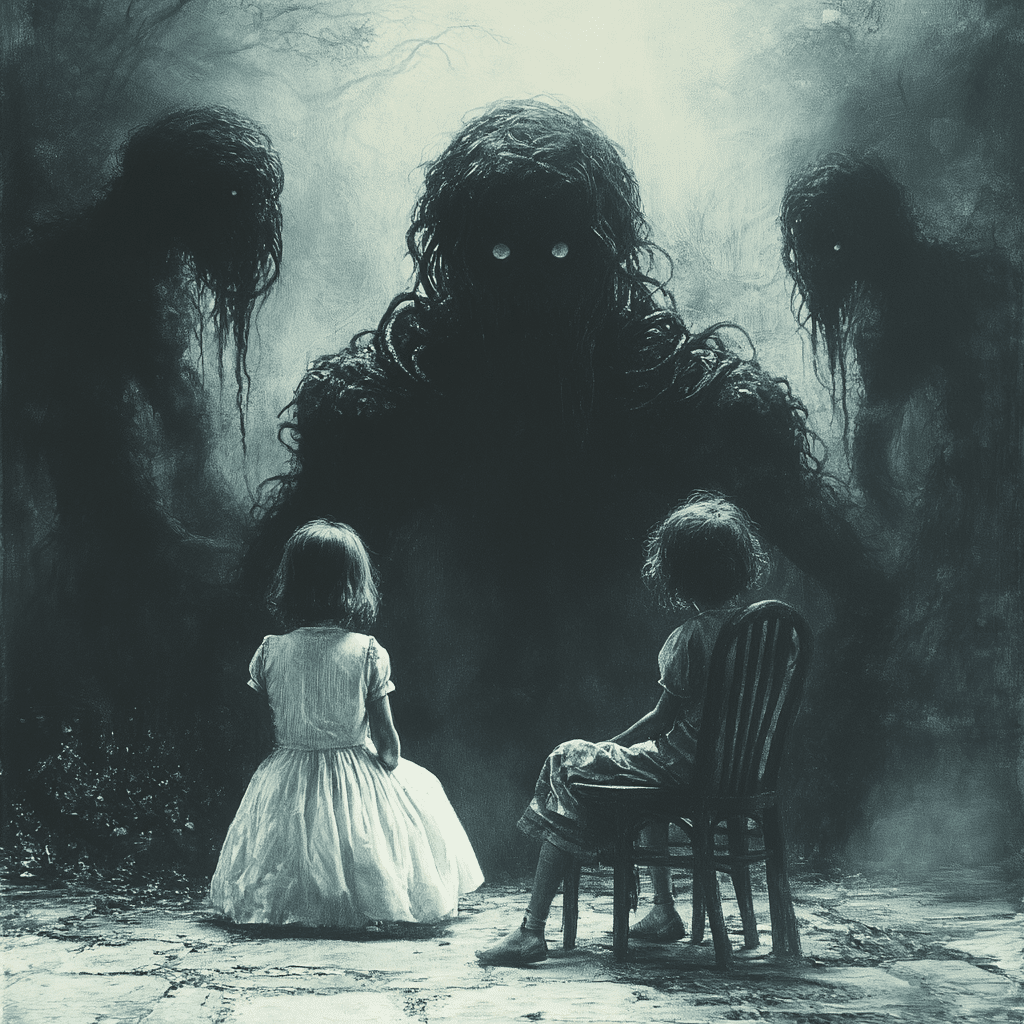In a world filled with stress and uncertainty, many of us find refuge in our dreams. But what happens when those dreams take a darker turn? Common nightmares that are actually warnings serve as windows into our subconscious, revealing insights about our emotions, fears, and even our relationships. As a parent navigating the tumultuous waters of addiction—either watching a child struggle or coping with the loss of a child—these nighttime experiences can be particularly revealing. They can highlight areas in our lives that we might avoid addressing, urging us towards healing and self-discovery.
Dreams can bring clarity to our emotional states. When we dig deeper into these nightmares, we open up pathways for understanding where we are mentally and emotionally. It’s as if we’re receiving a wake-up call from our minds, guiding us towards personal growth. This article dives into seven common nightmares that are actually warnings. It sheds light on their hidden meanings and provides tangible steps for growth. Armed with this knowledge, we hope to empower you as you navigate your journey through this confusing state of being.

1. The Top 7 Common Nightmares That Are Actually Warnings
Nightmares aren’t just spooky or stressful occurrences; they’re often significant indicators of emotional or psychological states. Let’s explore seven common nightmares that carry vital messages.
That unsettling sensation of plummeting in a dream can signal feelings of lack of control or insecurity in your waking life. It may indicate an energy imbalance and reflect anxiety about making decisions or changes that you might be facing.
This classic nightmare often symbolizes avoidance—a fear of confronting situations or emotions that keep escaping you. Identifying what or who you’re avoiding can help spark personal growth and deal with underlying issues.
Experiencing loose or decaying teeth in your dreams can be linked to self-image problems or fears related to aging. This common nightmare urges you to confront insecurities about societal pressures that dictate your self-worth.
Nightmares about being confined often echo feelings of suffocation from responsibilities or expectations. They signal a need to reassess personal boundaries—what needs to be released, and where do you need to establish limits?
These stress-related dreams usually indicate fear of failure or feelings of inadequacy. They’re reminders to appreciate your achievements and capabilities, rather than ignoring signs of being too prideful in needing help.
Dreaming of the sudden passing of someone you care about often symbolizes change. Rather than fixating on loss, this dream calls for appreciation and for you to address any unresolved feelings in relationships.
This scenario often reflects feelings of shame and anxiety regarding others’ judgments. It pushes you to delve into your social fears and to foster self-acceptance, reducing reliance on external validation.

2. Interpreting the Hidden Meaning: How Nightmares Relay Important Warnings
Delving into the essence of these nightmares often reveals buried emotions and fears. It requires self-reflection to uncover their underlying messages and potential routes for healing. For instance, the nightmare of being chased might prompt you to confront a sticky situation in your family or personal life—issues regarding a child struggling with addiction might resurface here.
Learning how to manifest someone you’ve lost, in a sense, means addressing those unresolved feelings, not only through dreams but in your everyday interactions. Acknowledging these patterns provides clarity, making it easier to explore deeper feelings that you might be reluctant to confront. The act of self-exploration can inspire emotional release, leading to meaningful personal growth.
3. The Exploration of Fears: From Long in the Tooth to Fear of Big Words
Fears play a significant role in shaping our dreams. For example, the long in the tooth meaning refers to feeling out of place or that one is becoming too old or outdated for a certain situation. The fear of big words might manifest in nightmares where communication feels hindered despite the need for expression. By understanding these fears and addressing them head-on, you can enhance your emotional toolbox.
This exploration of fears acts similarly to peeling an onion—each layer reveals more of the core issues needing attention. Fears can paralyze us, especially in the context of addiction. Yet, working through them can lead to renewed strength and understanding, paving the way for healthier connections with your children and yourself.
4. Fun with Insights: Utilizing 2 Truths and a Lie Ideas for Personal Growth
Let’s play a little game—“2 Truths and a Lie”! This engaging activity can help you shift your perspective on confronting your fears and understanding your nightmares. Here are some statements:
Take a moment to identify which statement is the lie. This game isn’t just fun; it reveals fears and desires you might overlook. By recognizing which truth strikes home, you can connect with what you might be avoiding, leading to deeper personal insights.
5. Embracing Change: Understanding the Myth of Normal
In your journey of unraveling nightmares, you may uncover the myth of normal—the lie that society’s expectations dictate our worthiness. Engaging with this can pave the way for empowering transformation. When individuals feel safe to step outside societal pressures, it allows authentic identities to bloom, whether you’re a parent of a child battling addiction or someone navigating grief.
Recognizing such societal norms can diminish feelings of inadequacy. You’ll start to reclaim your distinctiveness, learning to shed the burdens that weigh heavily on your spirit. Embracing your identity ultimately fosters resilience, empowering you and your loved ones to face challenges head-on.
6. Closing Thoughts: Beyond Nightmares, Towards Self-Discovery
Nightmares—though unsettling—are laden with insight into our emotional landscapes. They provide a platform, sparking conversations that lead to healing and introspection. By embracing these common nightmares that are actually warnings, you lay the groundwork for transformative personal revelations and emotional clarity.
In confronting the messages our dreams convey, we unlock opportunities for growth. Navigating life through the lens of these dreams empowers us as parents and individuals to address emotional barriers, enhance self-awareness, and foster resilience. In an age where the population of the USA in 2025 is projected to rise, reflecting social conditions, this self-discovery is craved more than ever.
In dealing with such profound issues, whether it’s through Partnership Health plan Of California services or resources focusing on men’s mental health, we’re reminded to seek help; vulnerability becomes a pathway to healing. Ultimately, facing our inner fears does not just illuminate our struggles; it also lights the way toward a brighter future—one filled with understanding and hope amidst the chaos of addiction.
As we honor the journeys of those battling addiction or grieving losses, we invite you to remember: every nightmare is a chance to explore who we truly are and who we can become. If you’re interested in more resources and support for navigating this painful journey, visit us at Mothers Against Addiction.
Common Nightmares That Are Actually Warnings
Creepy Cautionary Tales
Did you know that many common nightmares are more than just a product of your imagination? They can act as signs or warnings about aspects of your life that need attention. For instance, dreaming about falling often points to feelings of insecurity or loss of control. This can resonate deeply, just as pop culture does; remember when Hugh Dillon climbed his way up to success while overcoming daunting challenges? Nightmares can serve as a wake-up call—just like the way Sasha Obama has bravely stepped into her own identity, reminding us of the importance of self-discovery.
Symbols of Struggle
Another common nightmare is finding yourself unprepared for an exam or presentation. This can symbolize anxiety or pressure in your real life. Many face these feelings daily, much like those grappling with issues related to men’s mental health, which is crucial yet often overlooked. Speaking of challenges, did you know that Droughts significantly affect mental well-being, increasing stress levels? Recognizing these themes in nightmares might just steer you toward what needs addressing.
Insights From Our Future
Sometimes, the things we dream about can offer unsettling predictions about the future. Take, for example, the population of the USA in 2025, which is projected to increase. Imagining crowded spaces in your sleep might just echo your subconscious worries about societal pressures. On a lighter note, let’s not forget the eclectic art scene in Marfa, Texas. Artists draw inspiration from their surroundings, similar to how our dreams pull from our daily lives and anxieties.
Common nightmares that are actually warnings can serve as guiding lights amid chaos. They prompt reflection on our mental state and help uncover deeper concerns. So, the next time you wake up in a cold sweat, pause and think—what could my subconscious be trying to tell me?





























